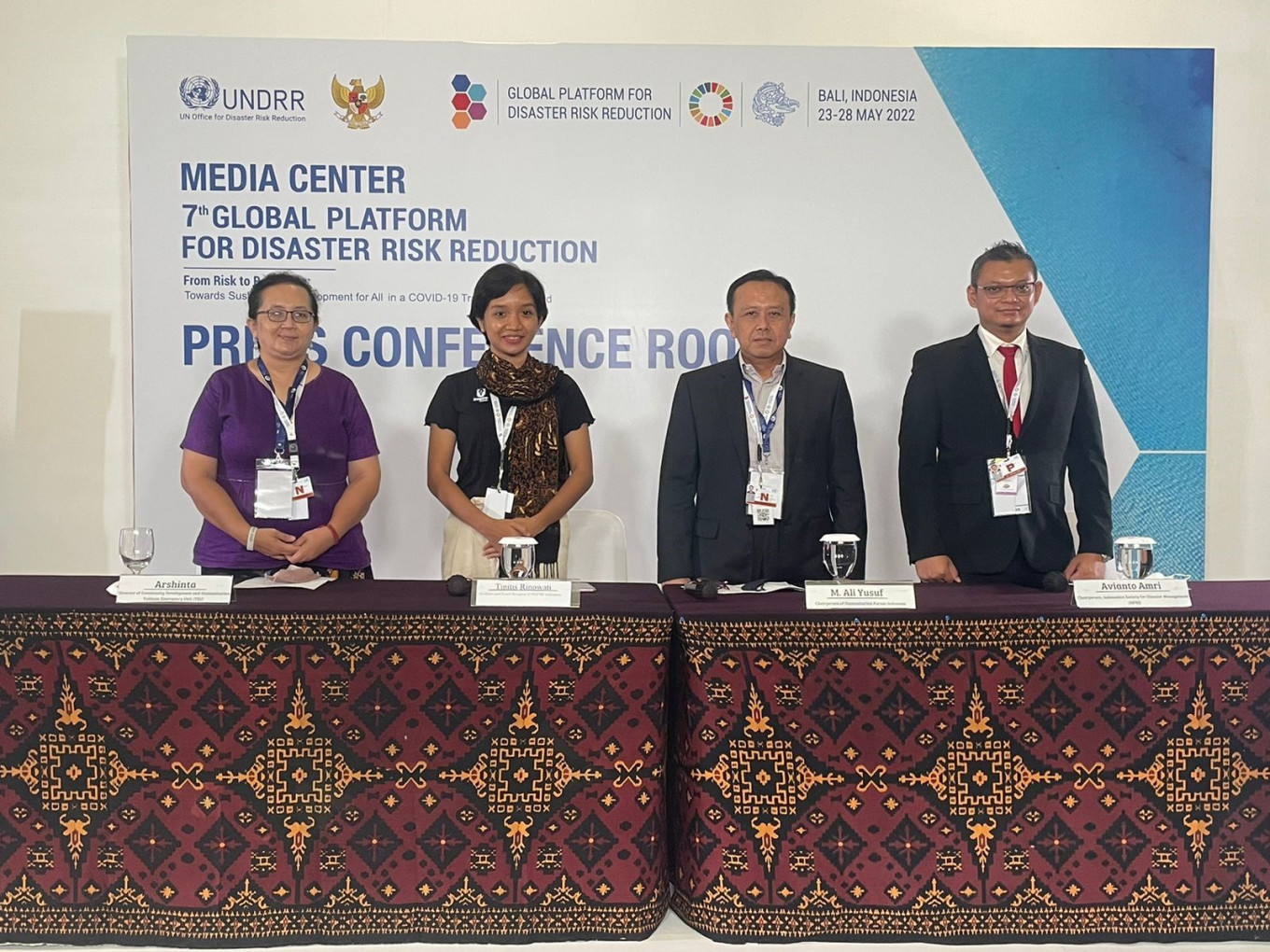Popular Reads
Top Results
Can't find what you're looking for?
View all search resultsPopular Reads
Top Results
Can't find what you're looking for?
View all search resultsThe value of ‘gotong royong’ for disaster relief
Indonesia is honored to host the 7th Global Platform for Disaster Risk Reduction (GPDRR), as well as to serve as the event’s co-chair, alongside the United Nations Office for Disaster Risk Reduction (UNDRR).
Change text size
Gift Premium Articles
to Anyone
I
ndonesia is honored to host the 7th Global Platform for Disaster Risk Reduction (GPDRR), as well as to serve as the event’s co-chair, alongside the United Nations Office for Disaster Risk Reduction (UNDRR). The event will cover specific agenda items, including the implementation of the Sendai Framework for Disaster Risk Reduction for 2015 to 2030, recommendations for priority actions for policymakers, highlighting good practices and raising awareness.
Indonesia is prone to natural disasters, which have increased in recent years due to global warming. Fortunately, it has a wealth of local wisdom inherited over generations – values and traditions that need to be strengthened to become inclusive and sustainable community resilience. This was expressed by the Civil Society Coalition for GPDRR at a press conference in Bali on Friday.
“Resilience is in our DNA, resilience is a part of our identity as Indonesians, and that has been proven through experiences of various disasters, including the COVID-19 pandemic. Therefore, we are very sure that local wisdom is a modality that needs to be continuously developed, including in responding to the pandemic,” said Arshinta, Director of Community Development and Humanitarian at the Christian Foundation for Public Health (YAKKUM) Emergency Unit (YEU).
One of the clearest examples of the community resilience is gotong royong (mutual support). The concept was highlighted by President Joko “Jokowi” Widodo at the opening of the 2022 GPDRR and is expected to be adopted globally. In fact, civil society groups have been involved in various meetings and side events, involving local community teachings.
"The involvement of civil society, including faith institutions and religious leaders, in disaster risk reduction is absolute because they are the first and most affected parties. However, they are also at the forefront of dealing with the impact of the disaster," said M. Ali Yusuf, Chair of Humanitarian Forum Indonesia. "Their aspirations must be heard, responded to and absorbed to become the basis for policy formulation so that they are able to bring up initiatives to build partnerships and collaborations in strengthening the nation's resilience in dealing with disasters."
The Family of Humanitarian Forum Indonesia, along with the Civil Society Coalition for the GPDRR, urge that efforts to strengthen sustainable resilience are community-centered and can accommodate the interests of groups at risk. The value will also be brought up and encouraged at the commemoration of Disaster Risk Reduction Month, the National Conference on Community-Based Disaster Risk Reduction, the G20 Summit, COP 27 and the Asia-Pacific Ministerial Conference on Disaster Risk Reduction – and the most important thing is the concrete follow-up in the community.










